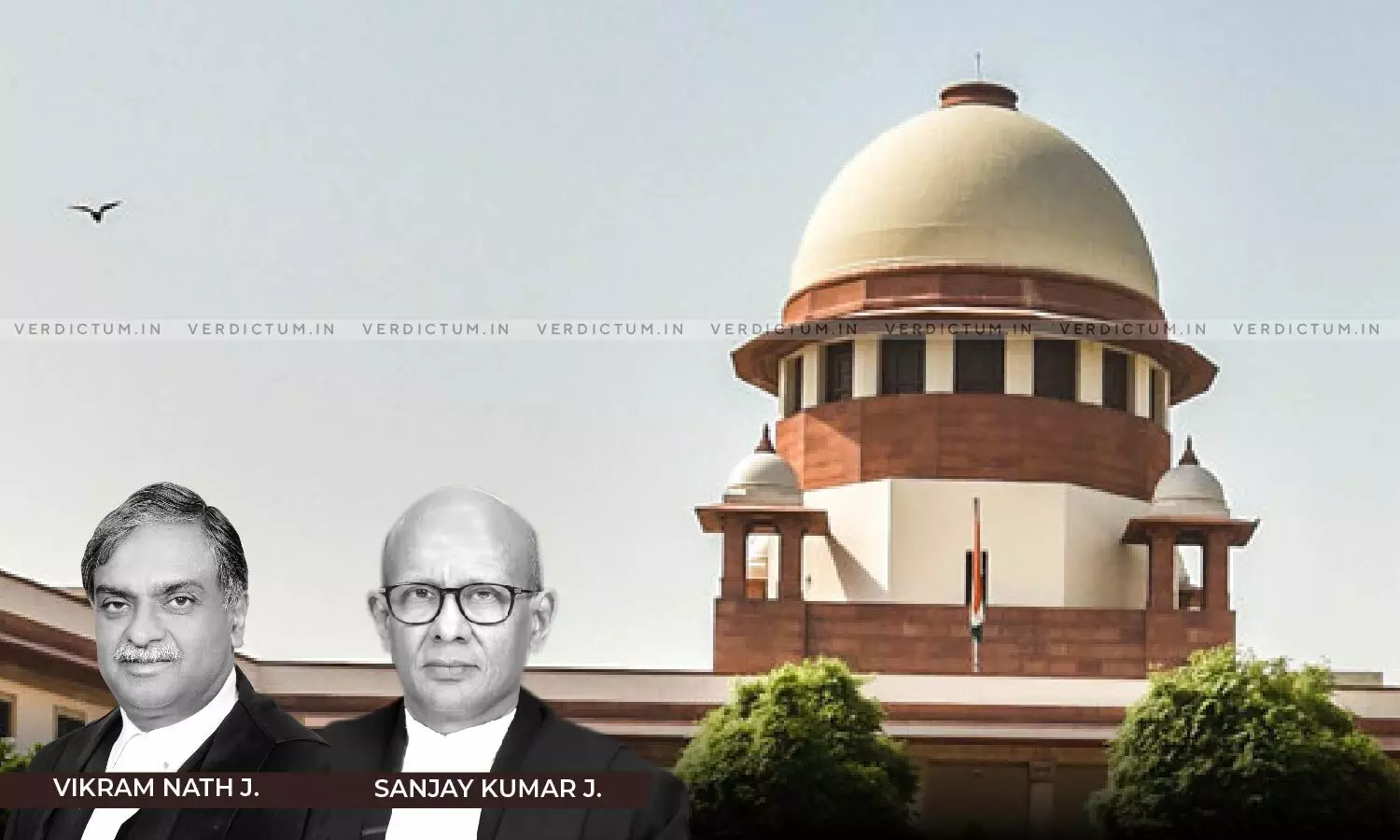
Full Bench Of P&H HC Had Invalidated Actual Allotments Made Under Discretionary Quota: SC Sets Aside Order To Allot Plot To Woman
 |
|The Supreme Court has set aside the Punjab and Haryana High Court’s Order dismissing the appeal against allotment of a plot in favor of a woman out of the Punjab Government’s discretionary quota. The High Court had observed that the Government had already approved allotment of a plot to the woman.
The Apex Court noted a crucial fact was not brought to the notice of the High Court, that is, the legal status of the discretionary quota rule, under which the Government of Punjab had approved allotment of a plot to the woman.
Justice Vikram Nath and Justice Sanjay Kumar noted thus “A Full Bench of the Punjab & Haryana High Court passed judgment dated 25.07.2003 in ‘Dr. Amar Singh and others Vs. State of Punjab and another’ [AIR 2004 P&H 67] following the decision of another Full Bench of the High Court in the context of a similar regime of reservation of plots and allotment through discretionary quota in the State of Haryana. This earlier Full Bench decision dated 21.03.1997 was rendered in CWP No. 5851 of 1996, titled ‘Anil Sabharwal Vs. State of Haryana’ [PLR (1997) 116 P&H 7(FB)]. Thereby, the Full Bench had observed that the discretion conferred on the Chief Minister was not immune from judicial review and ultimately declared illegal the allotment of residential plots under such discretionary quota.”
Advocate Birendra Kumar Mishra appeared for the appellant and Senior Advocate P.S. Patwalia appeared for the respondent.
In this case, the appellant- Improvement Trust, Ropar had moved the plea against the order of the Punjab and Haryana High Court whereby the appellants were directed to allot a plot under discretionary quota to the respondent-woman, a social worker.
Factual Background
The respondent had applied to the Chief Minister of Punjab for allotment of a plot of 500 square yards under his discretionary quota in the year 1987.
Acting thereupon, the Government of Punjab approved allotment of a residential plot of 500 square yards in Development Scheme Giani Zail Singh Nagar of Improvement Trust, Ropar, to respondent out of the Government’s discretionary quota under Rule 4 of the Punjab Town Improvement (Utilization of Land and Allotment of Plots) Rules, 1983, at double the reserve price on usual terms and conditions.
The respondent was asked to furnish an affidavit along with her Social Welfare certificates. The respondent complied with the said requirement, but the allotment did not materialize, and the issue was highlighted in the local newspapers.
Later, the Government of Punjab informed Shashi Bala that there was no plot clearly available for allotment under the Scheme, and her claim would be considered only after a plot became available. Aggrieved of it, she approached the High Court.
In 2006, the High Court allowed the petition and directed the appellant to allot the plot under the scheme. The appellant filed the appeal but the Division bench, in 2008, dismissed the appeal and the appellant approached the Apex Court.
The Apex Court said that a crucial fact regarding the legal status of the discretionary quota rule, under which the Government of Punjab had approved allotment of a plot to the respondent, was not brought to the notice of either of the judges i.e., the view of the full Bench of High Court in the case of Anil Sabharwal Vs. State of Haryana’ [PLR (1997) 116 P&H 7(FB) was not considered.
The High Court in the Anil Sabarwal (supra) decision has observed that “the discretion conferred on the Chief Minister was not immune from judicial review and ultimately declared illegal the allotment of residential plots under such discretionary quota. The allotments were quashed, subject to certain exceptions and directions.”
This decision of High Court was challenged before the Apex Court by way of Special Leave Petitions and the full bench decision was upheld as the discretionary quota of five per cent under the third proviso to Rule 4 was vague and arbitrary and was, therefore, violative of Article 14 of the Constitution.
The Apex Court said that the contention of the respondent that allotment of a plot stood complete upon approval by the Government of Punjab could not be accepted as letter clearly stated the Government had merely approved the allotment of a residential plot admeasuring 500 square yards and directed the Trust to allot an identified plot to her under Rule 4 of the Rules of 1983.
“Therefore, the act of identifying and allotting a specific plot was to be undertaken by the Trust and it was only approval that had been conferred by the Government.... Therefore, allotment of an identified plot in favour of Shashi Bala did not crystallize by the date of the Full Bench judgment in the year 2003 and remained stagnant at the stage of the Government’s approval.” observed the Apex Court.
Accordingly, the appeal was allowed and the impugned judgment of the High Court was set aside.
Cause Title- Improvement Trust, Ropar Through Its Chairman, Ropar, Punjab v. Shashi Bala & Anr.